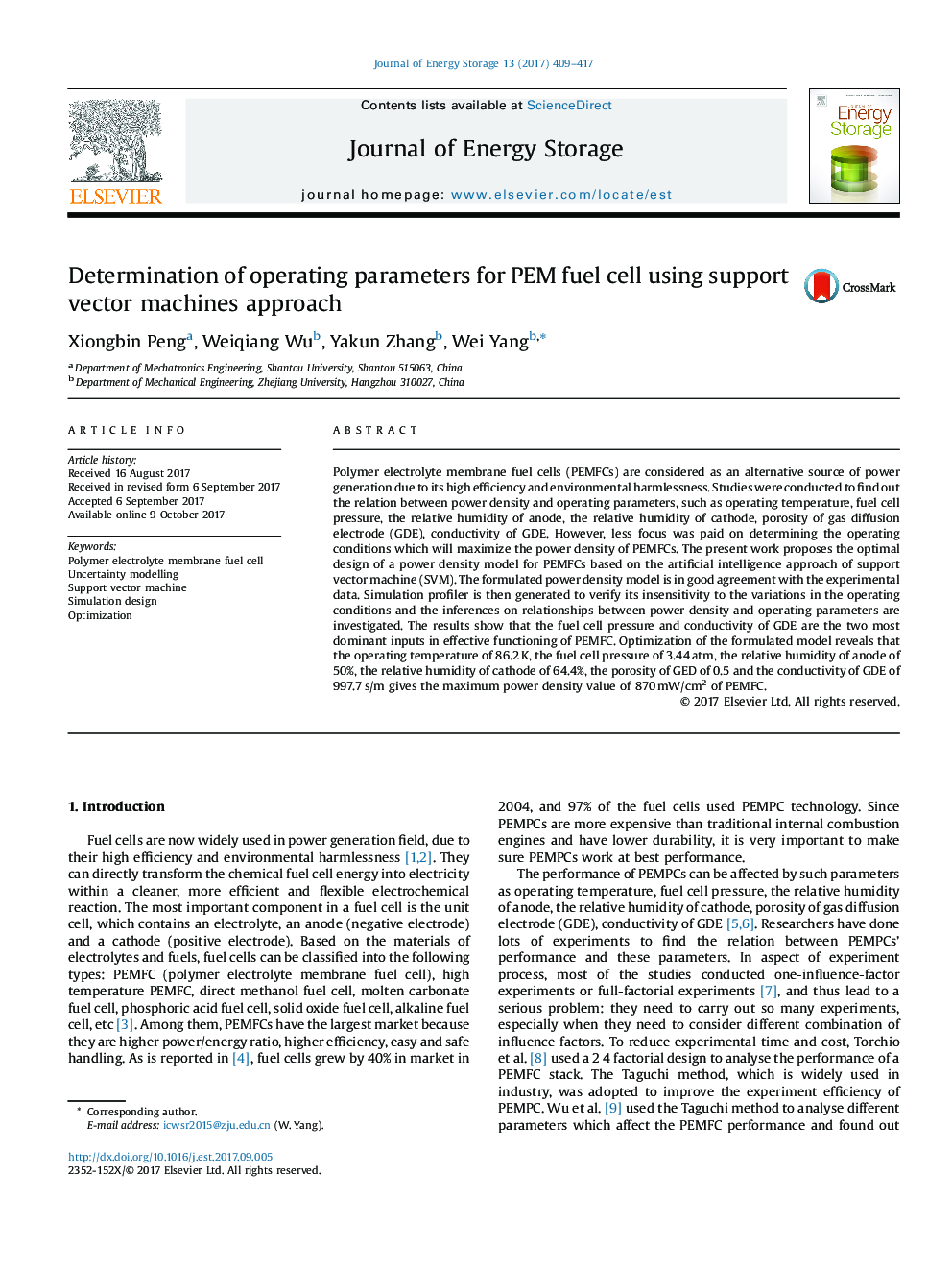| Article ID | Journal | Published Year | Pages | File Type |
|---|---|---|---|---|
| 5127353 | Journal of Energy Storage | 2017 | 9 Pages |
â¢PEMFC was designed based on six operating conditions (conductivity of electrode, etc).â¢Problem of determining the optimum operating conditions of PEMFC is undertaken.â¢A New Support Vector Machine based Model is used to determine relations of conditions.â¢Optimization of model results in maximum power density of 870 mW/cm2 of PEMFC.â¢Experimental data validates the model and its performance is found satisfactory.
Polymer electrolyte membrane fuel cells (PEMFCs) are considered as an alternative source of power generation due to its high efficiency and environmental harmlessness. Studies were conducted to find out the relation between power density and operating parameters, such as operating temperature, fuel cell pressure, the relative humidity of anode, the relative humidity of cathode, porosity of gas diffusion electrode (GDE), conductivity of GDE. However, less focus was paid on determining the operating conditions which will maximize the power density of PEMFCs. The present work proposes the optimal design of a power density model for PEMFCs based on the artificial intelligence approach of support vector machine (SVM). The formulated power density model is in good agreement with the experimental data. Simulation profiler is then generated to verify its insensitivity to the variations in the operating conditions and the inferences on relationships between power density and operating parameters are investigated. The results show that the fuel cell pressure and conductivity of GDE are the two most dominant inputs in effective functioning of PEMFC. Optimization of the formulated model reveals that the operating temperature of 86.2Â K, the fuel cell pressure of 3.44Â atm, the relative humidity of anode of 50%, the relative humidity of cathode of 64.4%, the porosity of GED of 0.5 and the conductivity of GDE of 997.7Â s/m gives the maximum power density value of 870Â mW/cm2 of PEMFC.
